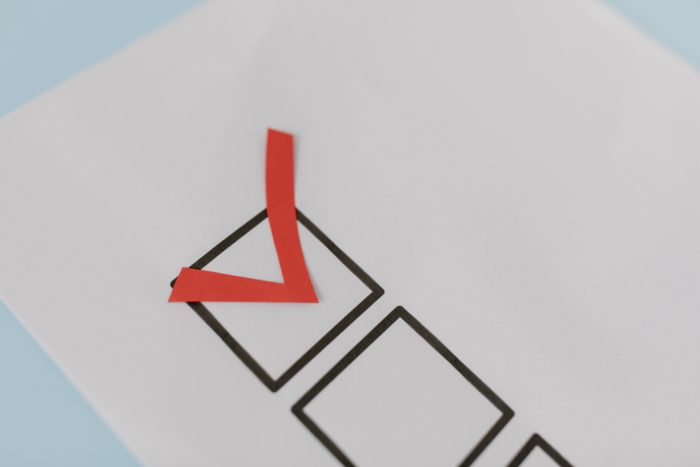Ballot order effects may not be driven by voters alone

In a new paper at the Journal of Politics, “How Campaigns Respond to Ballot Position: A New Mechanism for Order Effects”, Saad Gulzar, Thomas Robinson, and Nelson Ruiz find evidence that political campaigns spend more money in campaigns when placed at the top of the electoral ballot. This suggests that ballot order effects might not be driven entirely by voters.
Electing politicians is a complicated business. Faced with long lists of parties and candidates, voters often resort to shortcuts to help make their decisions easier. For decades, we have known that voters often simplify their choice by favoring candidates placed further up the ballot. Notably, even when ballot position is determined by lottery, candidates at the top of the ballot tend to see an uptick in their share of the vote.
In our new paper, we propose that it’s not just voter behavior that drives this vote windfall that top-positioned parties receive. If campaigns know they will appear at the top of the ballot in advance, they can also adjust their campaign strategy accordingly; campaigns placed on top of the ballot may expend more to take advantage of their lottery fortune.
To test this theory, we explore the case of local council elections in Colombia, where parties’ positions on the ballot are randomized a month before the election date. In these local council elections, held every four years, parties place “lists” of candidates on the ballot, and councillors are elected using proportional representation.
Using data from all 1099 municipalities, we show that parties placed at the top of the ballot see about a 7 percent increase in vote share (compared to those not placed at the top of the ballot) which translates into an almost 10% increase in seat share. This conforms with the large literature examining the effects of ballot order.
Most interestingly, however, this increase in electoral performance is preceded by an increase in campaign spending. Campaigns placed at the top of ballots raise and spend about 12 percent more on average compared to other campaigns. This increase in spending mostly goes towards additional publicity and electioneering and occurs only after the random ballot order has been announced.
We also find suggestive evidence that increased spending is particularly pronounced for marginal candidates who can directly influence their probability of re-election. In Colombia, parties can choose whether to field candidates in a fixed ranking (called closed-lists) or allow voters to choose candidates within their lists (called open-lists). We find that ballot order affects campaign strategy only for open-list campaigns. Moreover, top-ranked candidates within these lists (who are typically well-known party leaders more confident of being elected) do not adjust their spending. Rather, campaign spending is driven by those ranked lower down the list who may *just* miss out on being elected. Put simply; these candidates stand to gain the most from the increased prominence of their party on the ballot and respond by expending more campaign effort.
Taken together, the evidence, therefore, suggests that “winning” the ballot lottery prompts local party campaigns to adjust their campaign behavior strategically. As a consequence, our results suggest existing studies may overstate the extent to which it is voters alone who are driving this ballot order effect. By spending more money, campaigns placed top of the ballot appears to use their increased prominence to campaign more — a strategy that garners more votes.
This blog piece is based on the article “How Campaigns Respond to Ballot Position: A New Mechanism for Order Effects” by Saad Gulzar, Thomas S. Robinson, Nelson A. Ruiz, forthcoming in the Journal of Politics, April 2022.
The empirical analysis of this article has been succesfully replicated by the Journal of Politics and replication materials are available at the The Journal of Politics Dataverse.
About the authors
Saad Gulzar – Stanford University
Saad Gulzar is an Assistant Professor of Political Science at Stanford University. He researches how representative institutions can improve the lives of the poor, primarily in South Asia. You can find further information regarding his research on his website and follow him on Twitter @saadgulzar.
Thomas Robinson – Durham University
Thomas Robinson is an Assistant Professor in Quantitative Comparative Politics at the School of Government and International Affairs, Durham University. He researches money in politics, representation, and methodological issues within experimental and computational social science. You can find further information regarding his research on his website and follow him on Twitter @nosnibor_mot.
Nelson A Ruiz – University of Oxford
Nelson A. Ruiz is a UK Lecturer at the Department of Politics and International Relations at the University of Oxford and an Early Career Fellow at Leverhulme Trust. His research interests are in the political economy of development. Within this field, the main topic he is interested in is the role of money in politics. You can find further information regarding his research on his website and follow him on Twitter @nelson_ruizg.

